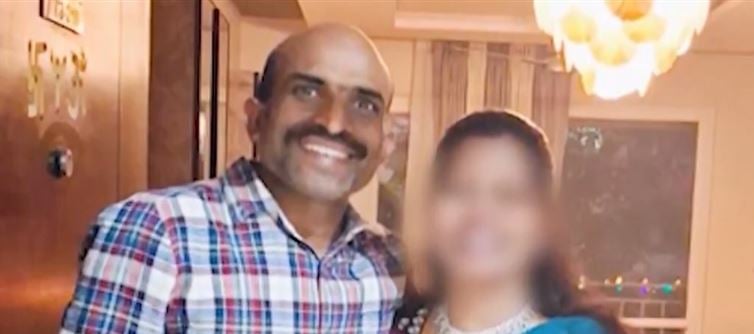
💔 14 Floors Down: The Silent Death of an IT Employee and the Loud Truth About India’s Mental health Crisis
Behind every tech park and glass tower lies a story of quiet suffering—and sometimes, a fatal fall.
🏢 A Jump That Shook the City
At dawn in Hyderabad’s Nallagandla, the calm of the Ranki Galaxy Apartments was ripped apart by a single, devastating sound.
A 46-year-old IT employee, Srinivasa Rao, ended his life by leaping from the 14th floor of his building. A man who once coded solutions for others couldn’t debug his own despair.
A man surrounded by people—yet completely alone.
His mother, Kamalamma, has accused her daughter-in-law, Jyoti, of relentless mental harassment—alleging that her son was pushed to suicide amid pressure to sign off his assets.
police at Chandanagar station have registered a case and launched an investigation. But even as procedures unfold, one question lingers:
👉 What drives a man to choose death over another day of life?
💭 The Invisible war Inside a Working Mind
Srinivasa Rao wasn’t the first. And heartbreakingly, he won’t be the last.
Across India’s booming IT corridors—from Hyderabad to Bengaluru, pune to Chennai—stories like this echo in silence.
Deadlines, debt, domestic strife, emotional isolation—when all of them pile up, even the strongest minds crack under invisible pressure.
Yet, our society treats mental health like a taboo.
We speak of depression as if it’s a weakness.
We call suicide a “coward’s act” instead of asking what broke the person beyond repair.
Behind the glowing LinkedIn profiles and weekend brunches, there are tears that no one sees—and a loneliness that no chat app can fix.
⚖️ When Family Becomes a Battlefield
According to Kamalamma’s complaint, Srinivasa Rao was allegedly pressured and harassed by his wife over his assets and financial decisions.
If true, it exposes an ugly truth that india often hides behind closed doors—financial control and emotional manipulation within families.
Marriages aren’t always partnerships. Sometimes, they become power struggles disguised as love stories.
And the cost?
Lives like Srinivasa Rao’s—silently crushed between emotional abuse and societal expectations.
This isn’t just a police case. It’s a human tragedy.
🧩 Mental Health: The Missing Code in corporate India
India’s IT sector prides itself on efficiency, innovation, and global competitiveness.
But here’s what HR manuals won’t tell you:
Thousands of employees silently battle anxiety, burnout, and breakdowns every day.
The pressure to perform, to “keep up,” to “fit in,” has turned corporate life into a ticking time bomb.
Add to that personal conflicts, financial stress, and emotional neglect, and you have a perfect storm.
Mental health support in indian workplaces is still an afterthought.
Counselling sessions are a checkbox, not a commitment.
By the time help arrives, it’s often too late.
🚨 One Death. A Thousand Warnings.
Srinivasa Rao’s death is not just a “news item.”
It’s a warning signal for every household, every office, every HR department that chooses silence over support.
Because suicides don’t happen in a moment. They happen in fragments—of neglect, of misunderstanding, of loneliness.
The final act is only the explosion of everything bottled up for years.
Every time someone takes their life, it’s not just a loss—it’s an indictment of how little we care.
🕯️ The 14th Floor Is a Mirror
That 14th floor isn’t just a physical height—it’s a symbol of emotional distance.
Between families who stop listening.
Between companies that don’t care.
Between a society that talks about mental health only after someone dies.
We mourn after the fall.
But do we ever ask what made them climb to that ledge?
Until we do, the next “14th floor” is only a matter of time.
⚫ Final Words
Srinivasa Rao’s death is not an isolated incident—it’s a collective cry for help.
For better mental health support.
For stronger family awareness.
For humane workplaces.
Because if a man has to die to be heard, it’s not just a tragedy.
It’s a national disgrace.




 click and follow Indiaherald WhatsApp channel
click and follow Indiaherald WhatsApp channel